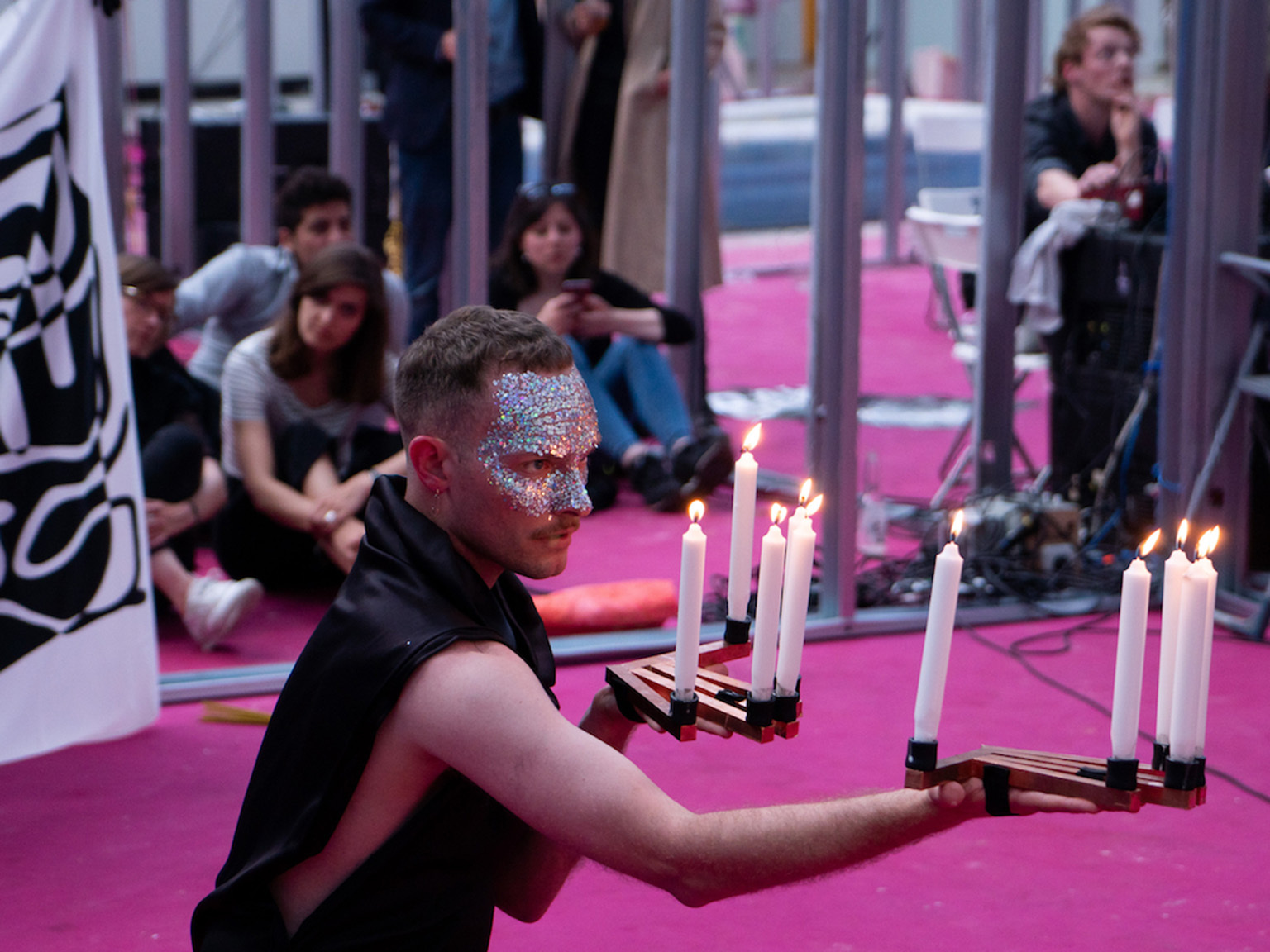Forelesning

Artist Talk: Tyler Matthew Oyer
Tyler's work seeks new ways of articulating the connection between various systems of oppression between the past and the present in an attempt to grapple with our collective political future.
Called an "interdisciplinary gospel immortalist" by Kembra Pfahler of the Voluptuous Horror of Karen Black, Tyler Matthew Oyer is an artist, writer, organizer, and educator based in Los Angeles. He makes performance with the purpose of critiquing the identity project under late-capitalism and its allied logics of oppression: racism, sexism, homophobia, ableism. He subscribes to a Brechtian tradition of theatre; one that foregrounds a Marxian dialectic of historical specificity, social critique, and revolutionary practice.
Oyer looks to ACT UP, Ridiculous/Queer theatre, Brechtian theatre, surrealism, as well as underground cabaret and performance movements for historical instances of resistance to the imbricated patterns of white supremacy, imperialism, patriarchy, and capitalism of the present. Through research into these diverse legacies of activisms, his performance work generates an intergenerational dialogue around politics, seeking new ways of articulating the connection between various systems of oppression between the past and the present in an attempt to grapple with our collective political future.
